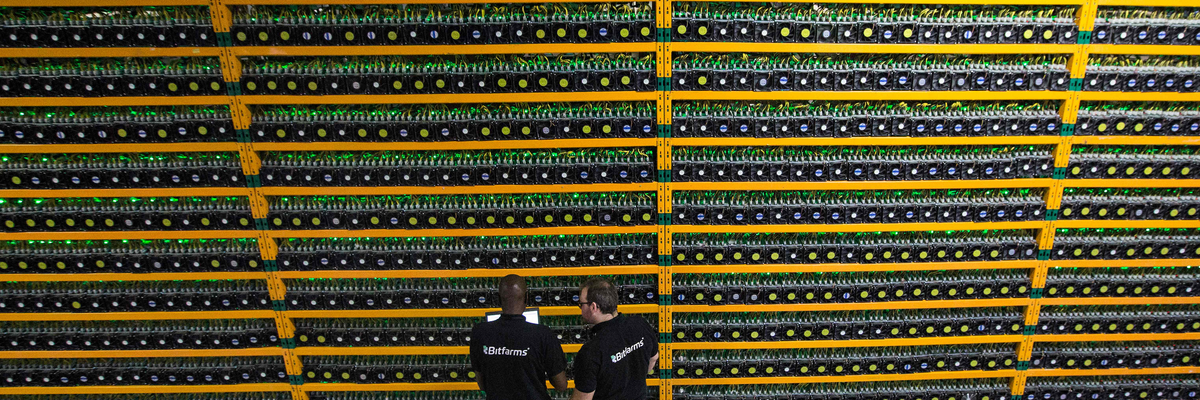A report published Wednesday by the Environmental Working Group examines how the "mining" process behind popular cryptocurrencies including bitcoin, Dogecoin, and Monero creates a wide range of pollution that is harming communities and fueling the climate emergency.
The EWG report—entitled Proof of Problems: Bitcoin Mining's Pollution Toll on U.S. Communities—profiles six case studies of adverse effects of the cryptocurrency mining process known as "proof-of-work."
"This report vividly shows how proof-of-work crypto-mining operations are contributing to increased air, water, and noise pollution in many communities across the U.S.," EWG policy director and report co-author Jessica Hernandez said in a statement.
"It amplifies the voices of those who are fighting to save their homes and livelihoods from the bitcoin mines invading their communities," Hernandez added. "The industry cannot continue to turn a blind eye to the real-world harm it is causing or greenwash the problem away."
As an executive summary of the report details:
Not all bitcoin mines are alike. Some rely on the resurrection of dormant fossil fuel power plants, some find low-cost high-pollution fuel sources like burning coal waste in Pennsylvania, and others flare gas from oil wells to generate the necessary electricity, like the mines blighting Montana's scenery.
They all use the same technology, individual computer hardware no bigger than a shoe box or two, all competing to solve the same puzzle and earn a few bitcoin. But it takes thousands of these mining computers, called rigs, to become competitive in the mining industry. That's why some companies are placing multiple shipping crates full of bitcoin mining rigs in communities across the U.S...
What these mines have in common is their use of proof-of-work, which is wasteful by design. This system, a type of software to record and manage bitcoin transactions, has proven highly inefficient, requiring massive amounts of fossil fuel-generated electricity to operate. Proof-of-work is a source of constant noise, a blight in communities across the country, and a hotbed of fraud and corruption that bilks consumers and ratepayers out of billions of dollars.
"Despite staunch opposition nearly everywhere bitcoin is mined, Wall Street bankers and other large financial backers manage to continue this assault on climate and communities across the country," the report states. "Change is needed, and it's needed urgently."
One of the report's case studies shows how a Blockstream mining center in Adel, Georgia created so much noise that the residents of one nearby house spent thousands of dollars to install 11 layers of insulation as the constant din damaged their hearing and kept them captive in their own home.
"It sounds like 1,000 jet engines taking off at one time. You can hear it five miles away from here," said Annette Tiveron, who lives in the house. "It ripples our pond from the vibration with the machines. It's literally shaking your brain."
The EWG report renews the group's calls to "change the code, not the climate" and highlights alternatives to proof-of-work, such as "proof-of-stake," to which the cryptocurrency Ethereum switched last year.
"Speaking with people around the country has been eye-opening in revealing the extent of the problems that bitcoin mines are causing in communities," EWG editor in chief and report co-author Anthony Lacey said in a statement. "It's hard to learn of these stories and not ask why bitcoin miners can't change their code to be better neighbors."

